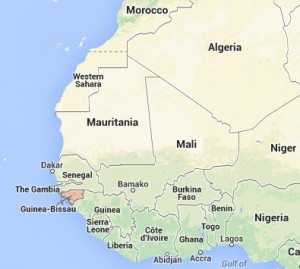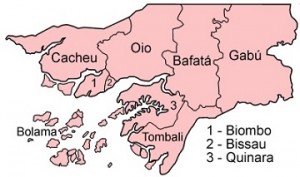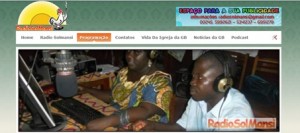
La Salete Coelho and Miguel Silva, partners in the social economy project at the Centre for African Studies, University of Oporto, Portugal, have just returned from Guinea-Bissau, where they carried out some interviews with people working in social and solidarity economy organisations.
These interviews will provide data and case studies for the handbook which will be a main outcome of the project to inform the teaching of social economy in universities in Europe, Latin America and Africa.
Miguel and La Salete chose a variety of types of organisations: associations, cooperatives, non-governmental organisations and informal groups. They also chose organisations in different geographical areas of the country.

The following organisations kindly agreed to take part in the research:
Artissal – local development NGO which promotes fair and sustainable tourism and produces handmade crafts – region of Biombo
COAJOQ – an agriculture and livestock cooperative formed by young staff trained in the sector – region of Cacheu.

Radio Sol Mansi – a radio station which began as a community radio and which now has national coverage. Some staff from the studio in Mansoa and in Bissau were interviewed.
Tiniguena – a local development NGO which promotes local management of biodiversity, targeting food security for present and future generations. Its headquarters are in Bissau but its main work is in the South and on the Islands of Bolama.
A representative of a group of women who work on the issues of livelihoods and gender through sewing activities and processing of local products (jams, juices, etc.) using a mutual savings and a credit system, called “Abota”, was also interviewed.
The project handbook will discuss the nature and practice of the social economy in different regions of the world. It will include:
Epistemology and values – what knowledge and values do people in the social economy claim to have?
Identity and profile of organisations – who are they? Where are they?
Modus operandi – law, project management, administrative, operational. How do they work? What differentiates them from other economic systems?
Professional competences – what knowledge, skills and behaviour are needed for the job?
ICT – good practices within the field. How does ICT make their work more effective?
Social capital – how is it built? What sustains it?
Social responsibility and transformation – how do organisations/enterprises bring about positive social change? How are they accountable?